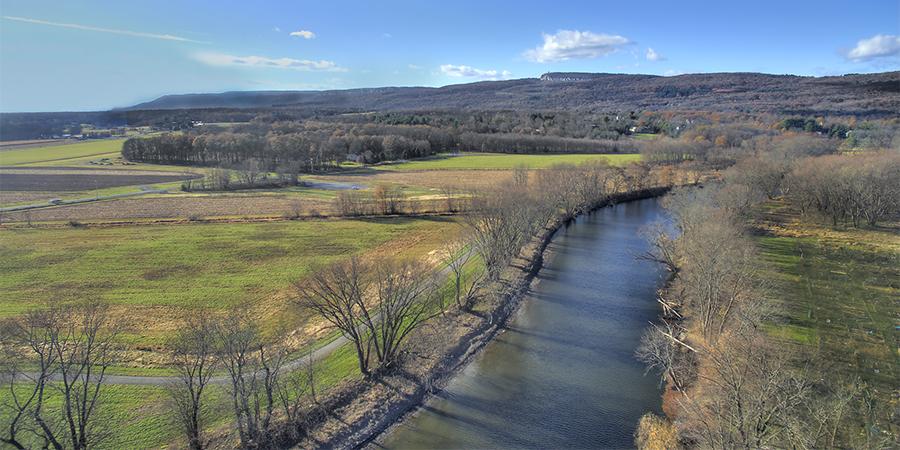NEW PALTZ – The State Department of Environmental Conservation announced on Thursday that the Wallkill River would be classified as a 303d water body in their inventory for priority, following years of bio-monitoring of the river.
This classification includes a Total Maximum Daily Load (TMDL), which will provide in-depth study of the Wallkill’s nutrient levels, particularly phosphorus, which have been leading to harmful algal blooms within the river, among other contributing factors.
Program Manager for the Stream Bio-monitoring Unit, Division of Water DEC, Brian Duffy, said sampling and monitoring efforts over the last two years have lead the state to this TMDL. The next step, he said, is to identify and quantify sources of those nutrients and generate a plan to reduce that load across the basin.
According to Riverkeeper, this phosphorus concentration is due to factors such as wildlife waste, particularly avian, human waste from sewage treatment centers that need repair, or not equipped for phosphorus treatment, agricultural runoff, residential runoff and storm runoff.
Water Quality Program Director for Riverkeeper, Dan Shapley, said the TMDL acts as a “pollution diet” for the river and is a huge step toward restoring the Wallkill.
Although it is understood the TMDL can take years to yield results, Shapley said there are a number of solutions evident in reducing this phosphorus concentration within the Wallkill.
“Waste water treatments plants are probably going to have to be upgraded, particularly your larger treatment plants in the cities and villages to treat a higher volume of waste, and then we are probably going to have get more resources from the state, more grants for farmers, more help to farmers to restore buffers along streams, so rather than planting crops right up to the edge of streams, maybe they leave a little for trees and they’re compensated for that,” said Shapley. “Strategies such as that to help reduce runoff from farms.” Those who are concerned with the health of the Wallkill River are urged to contact their state representatives, in hopes some of the infrastructure budget can be allocated toward updating waste water treatment plants and anyone using fertilizer on residential property are reminded to observe the zero-phosphorus law, put in place by the DEC, when fertilizing other than for starting a new lawn.








